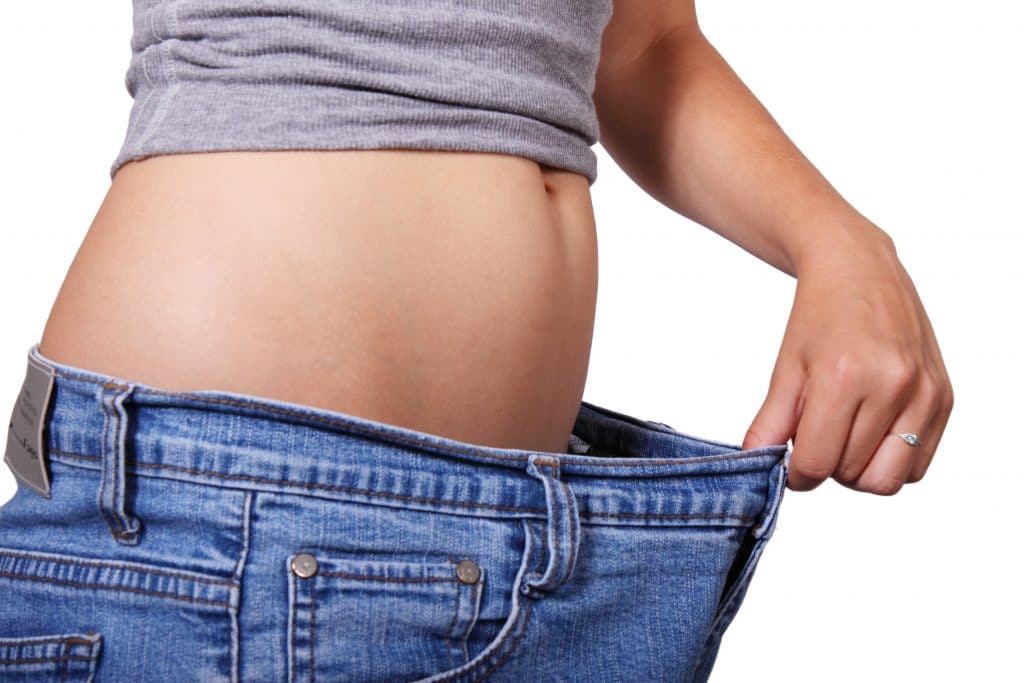Coffee Diet | 7 Ways Coffee Can Increase Weight Loss
Coffee not only helps us to fight mental illness it also provides lots of health benefits to our body. One of the benefits of coffee diet is that coffee helps us to maintain our body shape. We have listed 7 ways in which coffee can increase weight loss. Read the post and burn your body fat.
How Coffee Diet Can Increase Weight Loss?
1. Coffee can boost metabolism
caffeine alone increased calorie burn by about 1 calorie per mg of caffeine, up to roughly 100 calories per day. That’s about the calories in an egg and a half, or 1 tbsp. of butter. It’s just not that much food.
This should not come as a surprise to you. People typically drink coffee do it to wake up in the morning or get a boost of energy throughout the day. Caffeine has stimulant properties, and when caffeine is consumed in low to moderate doses, it binds to the adenosine receptors. This has been shown to increase locomotor activity. That means that the neurons in the brain fire more often. Caffeine also helps increase the activity of the feel-good neurotransmitters dopamine and norepinephrine. Research shows that caffeine in coffee can help boost metabolism. Surprisingly, this effect is more pronounced in lean individuals than in obese people. This indicates that while caffeine alone may not be the best thing to get you started on your weight-loss journey if you have a significant amount of weight to lose, coffee diet can help you maintain a healthy weight
2. Coffee reduces exertion in exercising
“Perceived exertion” is how hard you feel like you’re working.
Endurance athletes commonly ingest caffeine as a means to enhance training intensity and competitive performance. A widely-used source of caffeine is coffee, however conflicting evidence exists regarding the efficacy of coffee in improving endurance performance. In this context, the aims of this evidence-based review were three-fold: 1) to evaluate the effects of pre-exercise coffee on endurance performance, 2) to evaluate the effects of coffee on perceived exertion during endurance performance, and 3) to translate the research into usable information for athletes to make an informed decision regarding the intake of caffeine via coffee as a potential ergogenic aid. Searches of three major databases were performed using terms caffeine, and coffee, or coffee-caffeine, and endurance, or aerobic. Included studies (n=9) evaluated the effects of caffeinated coffee on human subjects, provided the caffeine dose administered, administered caffeine ≥45 minutes before testing, and included a measure of endurance performance (e.g., time trial). Significant improvements in endurance performance were observed in five of nine studies, which were on average 24.2% over controls for time to exhaustion trials, and 3.1% for time to completion trials. Three of the six studies found that coffee reduced perceived exertion during performance measures significantly more than control conditions (p<0.05). Based on the reviewed studies there is moderate evidence supporting the use of coffee as an ergogenic aid to improve performance in endurance cycling and running. Coffee providing 3-8.1mg/kg (1.36-3.68mg/lb) of caffeine may be used as a safe alternative to anhydrous caffeine to improve endurance performance.
3. Coffee diet increases fat burning
Caffeine doesn’t cause you to burn a lot more calories from a workout. But it does shift your calorie burn to use more fat.
When you work out, your body burns a certain number of calories. Those calories can come from either stored carbs or stored fat. The harder you work, the more carbs and the less fat you burn as a percentage of your total calories.
Consuming 3 mg of caffeine per kilogram of body weight (that’s the same amount as in the table above) shifted calorie burn more towards fat and increased the maximal rate of fat burning relative to carb burning. Instead of burning through stored carbohydrates, people who took caffeine before exercise burned through more stored fat.
Is that good? Well, it depends on what you want! If you’re on a low-carb diet and you want to do intense exercise, it could be really great because it’ll help your body use fat for energy and not throw a temper tantrum about not having enough carbs. It may also be helpful for endurance athletes who want to become more fat-adapted. In other words, it can help you be a better exerciser, which is good for weight loss and just for general health.
Read more: 5 Unbelievable Health Benefits of Drinking Coffee When You Wake Up
The caffeine in coffee enhances physical performance. “Caffeine may act directly on muscle to enhance its capacity to exercise,” according to “Essentials of Exercise Physiology,” by William D. McArdle and Frank L. Katch. It facilitates the use of fat as fuel for exercise, thus sparing the body’s limited glycogen reserves, according to McArdle and Katch. “Coffee can be a positive part of a sports diet if a person chooses to drink a cup of coffee before they work out,” said Nancy Clark, author of Sports Nutrition Guidebook. Coffee/caffeine also increases metabolism causing the body to burn more calories, according to a study published in the American Journal of Clinical Nutrition.
4. Coffee also prevents weight regain after losing weight
Caffeine supplements taken by themselves, without any diet/exercise changes, don’t cause weight loss, according to this systematic review (https://www.sciencedirect.com/science/article/pii/S1756464618301415).
But on the other hand, this study(https://www.ncbi.nlm.nih.gov/pubmed/25237367) found that caffeine prevented women from regaining weight after they lost it. That’s huge – most people can lose weight fine but then they can’t maintain the loss; they just regain it all and frequently gain more weight on top of that. These researchers first put 60 women on a diet. 30 got caffeine (5 mg/kg per day) and 30 didn’t. They ate the diet for 6 weeks. After that, they were studied for a month of maintenance. The women who got the caffeine kept losing weight at a very slow rate, while the women who didn’t get caffeine regained around 0.75 kilograms (just under 2 lbs pounds) in a month.
Do you Know – Coffee Decreases Mental Health Issues
Worth noting: this is a very short study and it’s just one study! Also, you might need to get a relatively high amount of caffeine for this to work, which used only 100 mg of caffeine per day, didn’t show the same benefits.
5. Effects of coffee on appetite and cravings
A lot of people drink coffee as an appetite suppressant and/or cravings-buster, but research on this is actually mixed.
The appetite-suppressing effects of caffeine may depend on your weight: as noted, there’s a stronger effect for people who were overweight to start with that for people already at a healthy weight.
On the other hand, if you’re getting your caffeine from coffee or tea, you might get an appetite-suppressing effect just from having your stomach full of warm liquid (yep, this is a documented thing that really happens!).
As for cravings, there hasn’t been a lot of research on this, but one promising avenue is the well-documented mood benefits of caffeine (as documented in caffeine gum, for example). Caffeine just makes people feel more energetic and cheerful – it’s a stimulant; that’s what stimulants do. Most people suggest that the effects aren’t just caused by reversing caffeine withdrawal: caffeine improves mood more or less equivalently in regular users and non-users.
Considering that low mood (or in scientific terms, “negative effect”) is a major cause of cravings and comfort eating, maybe coffee helps people control comfort-food cravings just by reducing their desire to be comforted. When you feel a little more all right with the world, you might not want that comfort donut so much after all.
6. Coffee can help with your workout
Your body can use fat for fuel. It can also use carbohydrates If your body is holding onto fat, it cannot be broken down to be used as fuel. In other words, you keep the fat right on your hips where it has always been. Caffeine stimulates the nervous system, which sends direct signals to the fat cells to tell them to break down fat. Caffeine also increases adrenaline (epinephrine) and noradrenaline levels in the blood. These fight-or-flight hormones signal the fat tissues to release lipids into the bloodstream, where they can be burned off. Basal metabolic rate (BMR) is the number of calories that your body needs to burn just to maintain daily functions. Your body burns calories just to get your blood flowing and respiration going. People often refer to your basal metabolic rate as your metabolism.
If you have a fast metabolism, you burn calories more efficiently and may lose weight more quickly on the same diet as someone with a slower metabolism. Many different factors influence metabolism. In Addition, BMR by as much as 11%. This metabolism boost is due primarily to caffeine’s ability to help you burn more fat. The more you consume, the bigger the effect. Although caffeine is considered to be a compound with low toxicity, it can, however, be dangerous in large doses. Caffeine’s metabolism-increasing properties are more noticeable in lean people than in obese people. For example, caffeine could increase the amount of fat burned in lean individuals by almost 30%. Fat burning was only increased by about 10% of obese participants. The younger you are, the more likely caffeine is to help improve your metabolism. So it’s best to start drinking coffee at a young age, don’t ya think!
7. Coffee diet can prevent headaches
When the pain comes on, the blood vessels in your brain widen; caffeine constricts them. It’s also a mild pain reliever. Coffee has long been a go-to for curing hangovers, but there’s little evidence that it actually does anything to combat the effects of alcohol. In fact, there’s no evidence. You may still want to have your morning cup of joe after a night of drinking, though. Here’s a look at the effects coffee has on people recovering from hangovers.
Caffeine Helps To Avoid Withdrawal Headaches And Tension
If you’re a regular coffee drinker, you may have a mild caffeine addiction. Should you skip your morning coffee, withdrawal symptoms may make your hangover worse. A headache you already have from drinking could become more severe if you don’t have at least a little caffeine.
The only way coffee helps a hangover is by preventing caffeine withdrawal from making it worse. In this situation, though, coffee’s not alleviating the hangover symptoms. It’s simply preventing other symptoms from developing that would compound the present ones.
The best solution is often to go back to sleep if you’re able to. If you can’t just sleep the morning away, try drinking a little coffee with plenty of water. You might:
- Drink a full glass of water immediately after waking up
- Have a little coffee, perhaps half a cup
- Drink another glass of water
- Wait for 30 to 60 minutes before having more coffee
- If you’re feeling a little better, have another half-cup of coffee
- Continue drinking copious amounts of water
Most people would think only water or special pill will help with headaches, but caffeine has proven time and time again to help with mild headaches and blood tension in the brain.




